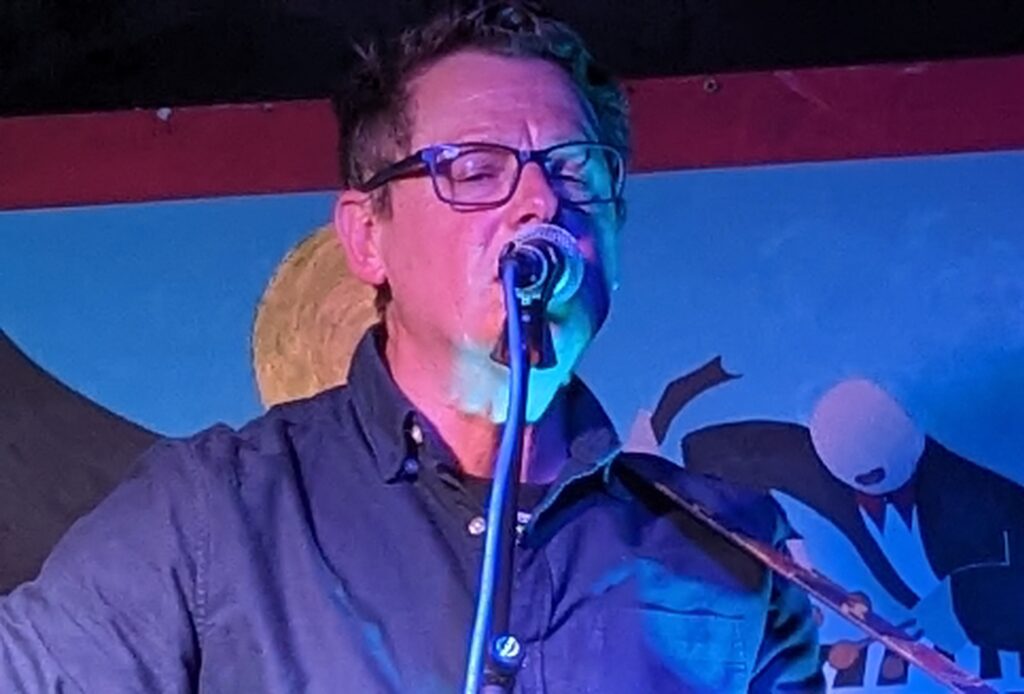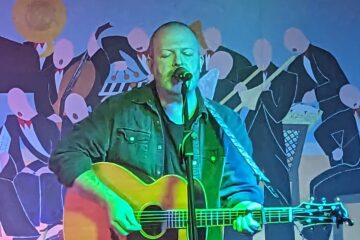The evening began with a sobering introduction by resident sound engineer Martin Edwards about the importance of suitable venues for live grass roots music and how quickly they are dwindling.
Enough to drive you to drink and where better than at Tom’s Tap?
I have written in many previous reviews about the courage of the solo performer – there’s nowhere to hide, no band mates to busk on while you flounder and if you are performing your own material, then you are doubly vulnerable because you are writing about your own experiences, your own place on earth, your own hopes and dreams. Although Nick Sharratt and Bob M. say they write for themselves, the creative process is not completed until it reaches an audience, a necessity that is acknowledged by the fact that such performers are prepared to leave their studio to put themselves in danger out there.
As Martin Edwards pointed out, venues are dwindling. Tom’s Tap is the ideal space for solo singer-songwriters because of its size, hospitality and unpretentious yet comfortable ethos.

First on was Nick Sharratt after a gap of eighteen months. His songs, drawn from his life and environment, had a gentle touch – a tender intimacy with an edge of melancholy. The nature of the venue meant that the back stories to Nick’s songs (for example the death of Jeff Buckley, fully clad in the River Mississippi) could be told and appreciated. This can never happen in bigger venues because too many other agendas are on the go.
Bob M. also hailed from the Potteries and his life and background was similarly inspirational to his work. His use of the harmonica added poignancy and nostalgic distance to his melodic narratives, though he did point out that songs needn’t be conventionally full of sorrow! An interesting insight into a musician’s protocol was thanking the audience as a way to announce that a song has finished, rather than as a presumption of their applause.


Tiny Pioneers – Jim Farmer – ended with a selection of songs reflecting vulnerable encounters, plaintiff mistimed experiences or existential awareness expressed in a complex tapestry of images: tenderly wistful, or viscerally arresting in the livid landscape of the edgelands whilst honouring both the melodic and rhythmic potential of the guitar.
Admittedly we are talking about The Potteries and Crewe and not medieval Provence, but Troubadours will always exist because they are self-driven to express their human existence and because there will always be a need for others to hear their own experiences echoed.
Thanks to all concerned in bringing this welcome and this music.
© Sandra Gibson 2024
Photos by Martin Edwards


